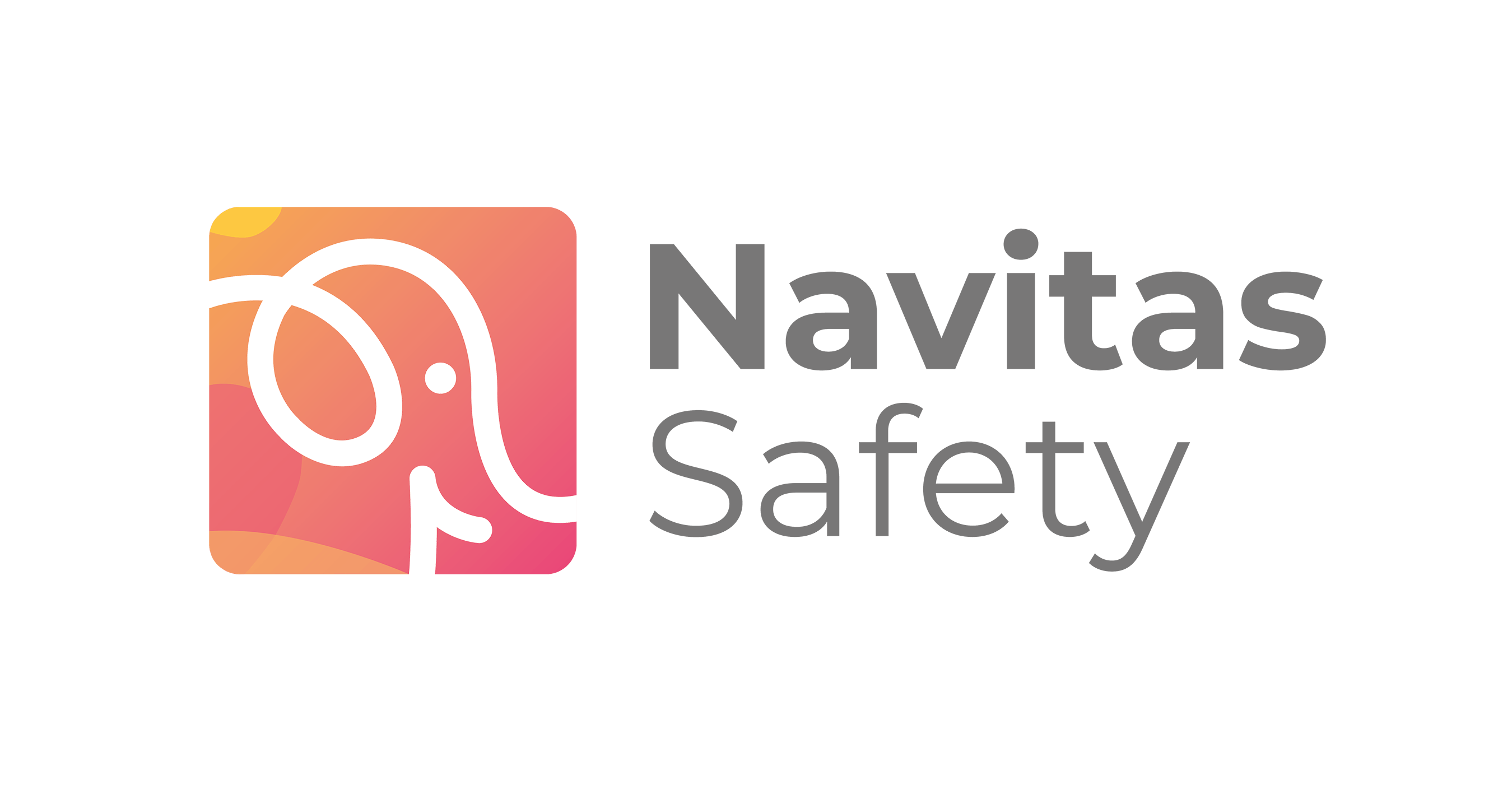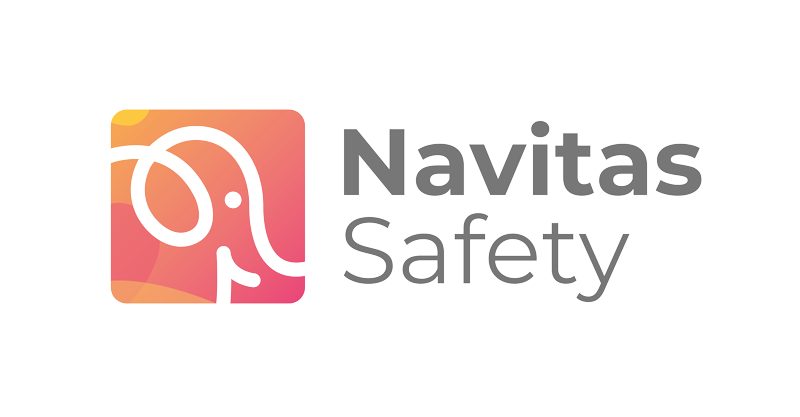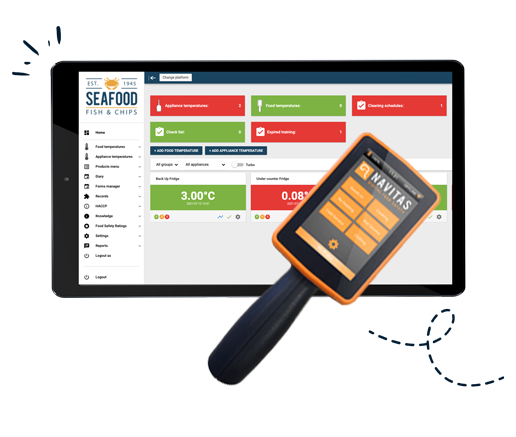Contemplating a fish and chip shop for sale? Whether it’s a new and empty space waiting to be furnished or an old shop in need of a deep clean and refurbishment, read along! Turning a fish and chip shop for sale into a prosperous and tasty foodservice business takes more than buying a performing deep fryer. Indeed, this blog will take you through all the necessary bits to consider for smooth operations. Kitchen equipment, cleaning essentials, food safety must-haves and much more! We love our Chippy customers so we’ve decided to share our expertise gained from our long lasting relationships in the market – just for you! 🌟
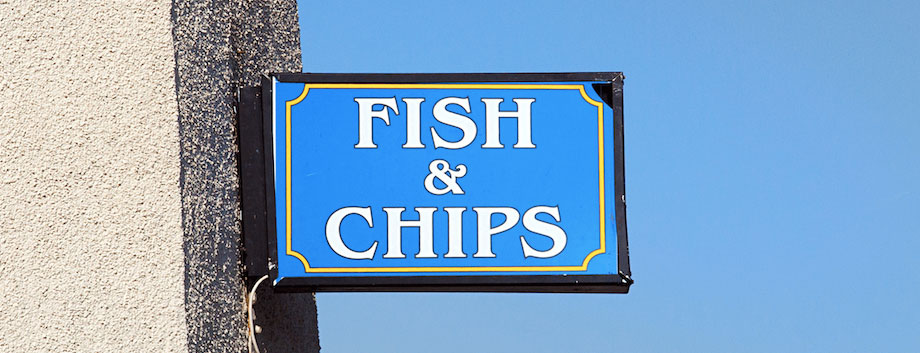
Fish and chip shop for sale - where to start?
The fish and chip shop market is a real, close-knit family. And so sometimes it’s good to share best practices to help chefs, owners or ex-fishmongers to (re)start their business. But we get it – it can be very overwhelming to draft a list of all the things you need to buy and do first. So, let’s make it a bit easier for you. When considering fish and chip shops for sale, think about:
- Kitchen equipment essentials (fridges, sinks, dishwashers, ovens, hot food display counters)
- Fish and chip shop key appliances (fryers, fish fridges, chip scuttles, potato storage pallets, chippers)
- Takeaway specifics (procedures, cardboard and paper containers)
- Food safety must-haves (temperature monitoring system, allergen tracker, cleaning checklists, oil filters)
- Fire safety (alarms, procedures and policy)
- Booking your first food safety inspection
Keeping these categories in mind will help you organise better when calculating costs and getting started with your fish and chip shop!
Getting started with your kitchen equipment
If the fish and chip shop for sale you have in mind already has some equipment, do not miss out on a deep clean. And even if you are bringing in new kitchen appliances, give them a deep clean as well to stay safe and start on the right track 😉.
On that note, give your fryers, peelers, pans, counter tops and fridges a top-notch clean too. More specifically, ensure any old traces of carbon on pans and fryers are cleaned and double check that all the oil has been drained. Best way to do it? Give all equipment a proper boil out to remove grease and carbon. As for general cleaning of surfaces in your chippy, use disinfectant or rinse with hot water (82°C minimum) for 2 minutes at least to get rid of all potential bacteria.
Finally, keep in mind that once your fish and chip shop is open, its structure will be a key area for future inspections. Your Environmental Health Officer will indeed double check how safe it is for your staff to walk through and cook at the premises. So don’t let your guard down and plan your kitchen and service areas carefully. If you fancy more tips on how to be prepared for your next inspection, read our guide here!
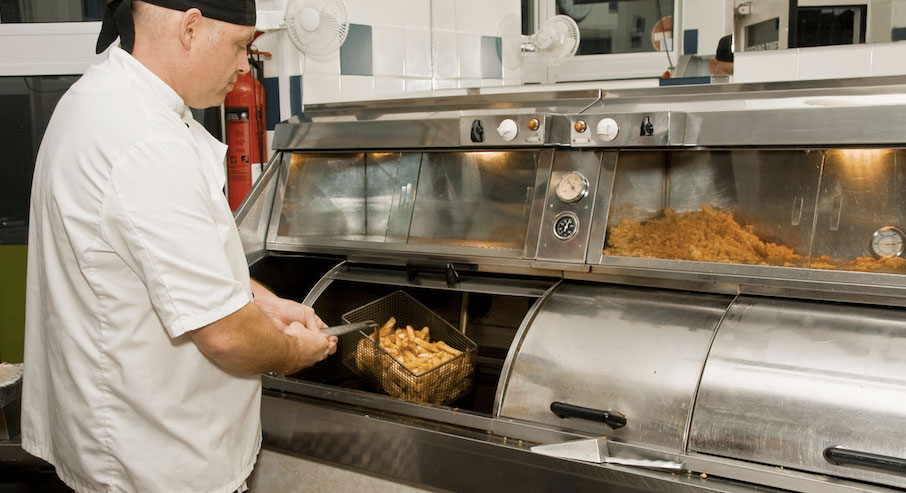
Get a complete food safety net for total reassurance
Starting a fish and chip shop business isn’t an easy task. And we feel you! All you want to do is concentrate on that perfect golden and crispy fried fish rather than worry about safety. So, the good news is that there are multiple ways to make your life easier. Here’s how:
Set up an automated temperature monitoring system
First things first: temperature monitoring. Fish, oil, pies, chips, tartar sauce – there’s a lot to monitor. One way to simplify this safety process is to equip your kitchen with smart probes and smart pods. Indeed, smart pods can be discreetly fitted inside your fridges and freezers and record temperatures every 15 minutes, 24/7. That way, there’s no need to worry! This will keep your uncooked frozen fish at compliant temperature ranges: -18 degrees in the freezers and between 0-4 degrees in your fish fridges.
Additionally, smart probes also help you monitor temperatures (whether hot or cold). This gives your team full safety accountability as soon as the temperature is automatically logged into the system. Much easier than manual recording – which can lead to a lot of human errors! Plus, you will only be alerted when needed if an issue arises, so you can keep focusing on frying that perfect chip! Therefore, you might want to explore our digital food safety kits next time you are browsing fish and chip shops for sale.
Turn all your fish and chip shop checklists digital
If we were to say “pile of greasy checklists”… would you relate? You know, that oil-stained paperwork waiting for you in the corner of the kitchen counter. Fear no more, as you can ditch all manual paperwork for your new fish and chip shop. With a system like Navitas you can turn all your checklists digital:
- Opening & closing checks
- Cleaning routines (hourly, daily, monthly, annually)
- Allergen lists
- Maintenance deadlines
- Staff training records
- Pre-inspection checklist and more.
You can save about 20+ hours of time each month with digital checklists. How? You can visualise, tick, sign and send checklists within seconds from a mobile or tablet. In addition, go granular and clearly state which item is being cleaned, how often, with which products, by who and even add a person to supervise and approve. That way, you can be sure that your team always complete their food safety tasks properly. No room for staff mistakes 😉. On top of that, you also get a super convenient compliance calendar. This is perfect to help you manage your staff simply and safely. In a nutshell, all you need is a quick glance at it and you’ll have total confidence for when you greet your hungry customers – or rushed Deliveroo drivers.
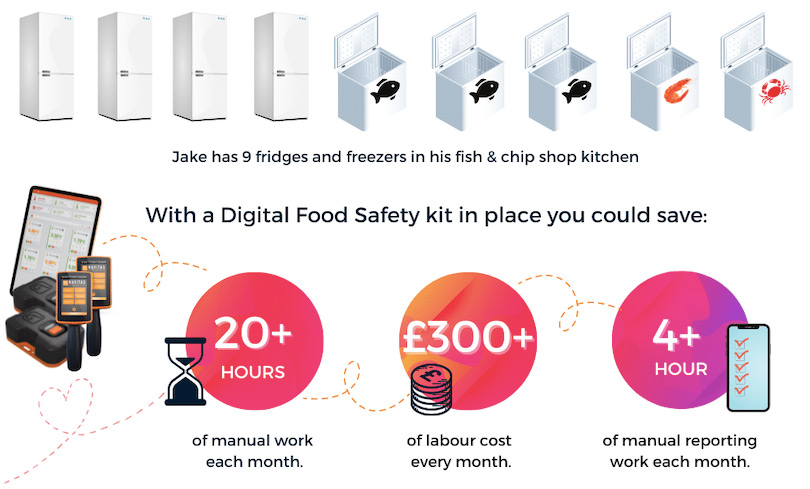
Perfect your oil management
When looking at a fish and chip for sale, oil management should definitely cross your mind. To keep the premises and food safe, regular oil filtering is required. First, to remove any pathogens and contaminants from previous cooking. Second, to keep a tasty and healthy oil to serve perfect, golden and crispy fish and chips. Therefore, ensure your future chippy has proper oil filtration and sieving systems. As good practice, sieving and/or filtering should be done at least twice a day.
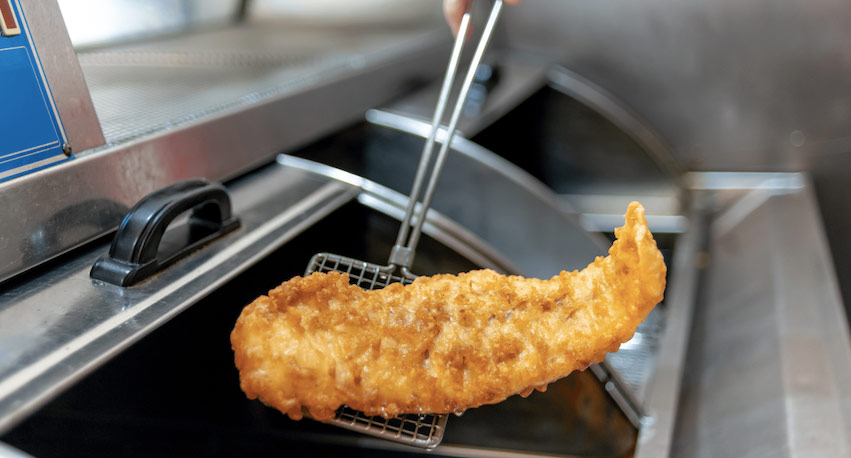
Keep track of allergens
Dairy, nuts, fish, crustaceans, gluten – welcome to the lovely world of allergens! Fish and chips is actually a very risky dish when looking at potential allergen contamination. Namely with the gluten and eggs in the batter, the dairy in the tartar sauce, the fish and crustaceans… so when starting your fish and chip shop business, implement a simple system to trace allergens from suppliers to service. More specifically, consider specific cooking and cleaning checklists for gluten-free fish and chip dishes. You might want to dedicate a specific fryer and preparation area. Indeed, gluten cannot be sieved from the oil so ensure your (future) staff is all aware in terms of oil and allergen management. Digital checklists can also be an ideal and quick way to ensure regular safety checks on allergen labelling and storage.
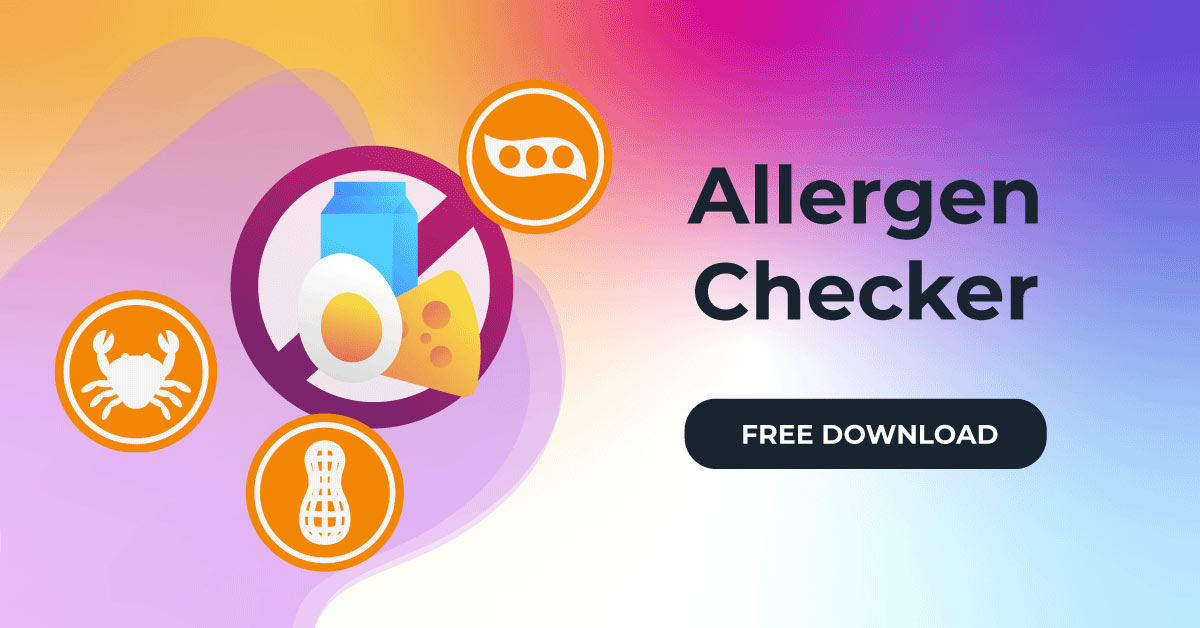
We have a FREE allergen checker for you to help you visualise all allergens across your menu.
Fish and chip shop for sale: the other bits to do
Protect your fish and chip shop from fire risks
Fish and chip shops typically get involved with a lot of high temperature cooking which dramatically increases fire safety risks. On top of obvious fire equipment (alarms, fire extinguishers), draw your attention to cleaning procedures and automated temperature monitoring systems. Indeed, poor oil management and cleaning procedures can quickly increase the chances of a fire starting in your kitchen. And specifically with fryers! So get your digital checklists ready and keep an eye on your digital compliance calendar for any due safety checks 😉.
Safety training for your staff
Establishing a positive food safety culture is essential for your chippy to thrive. Empower your staff with appropriate food safety training. Doing so will increase your overall food hygiene score by acting as evidence of a safe working culture at your fish and chip shop. And because everybody’s busy with customers, frying or exploring the next vegan fish and chip recipe, opt for online training for complete convenience.
Book your food safety inspection
Exploring fish and chip shops for sale is one thing. But thinking about your first food inspection is another – daunting – one. But do not worry! If you follow the required safety process there is nothing to fear. You will have to register with your local council at least 28 days before the grand opening of your new fish and chip shop. To help you get fully ready, follow our guide with 8 core steps to build a compelling and efficient food safety management system.
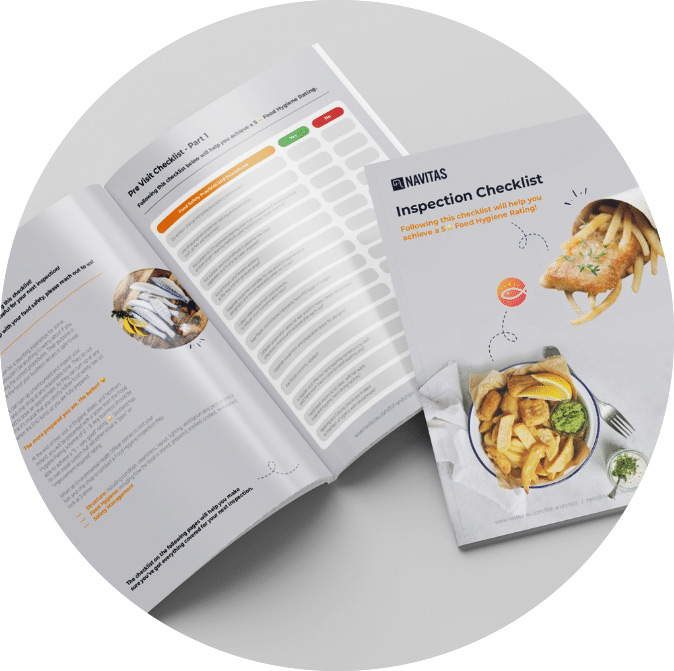
Dreading that next unexpected visit by the EHO?
We have a free and super easy pre-inspection checklist for you, specifically designed for chippies ⤵️
It's time to safely open your new fish and chip shop!
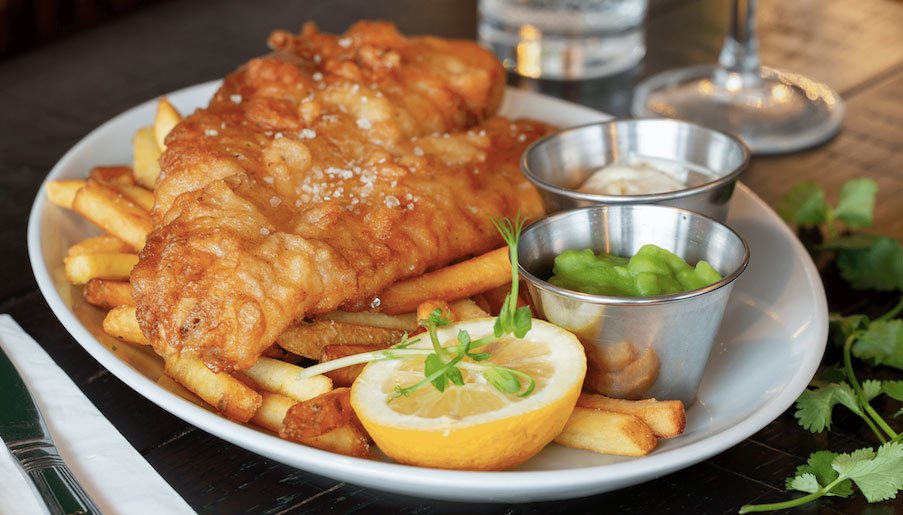
We hope this quick blog was insightful and reassured you. When contemplating a fish and chip shop for sale we do understand there’s a lot to think about. We have been working with numerous fish and chip shops for many years now and our lovely team of experts is fully available to give you a hand when needed. Whether it’s to discuss your potential business needs, safety audits or advice – we can help.
Don’t miss the safety boat – catch the digital wave! Complete all your cleaning checklists within seconds from your mobile, let the system run automated temperature checks and keep frying with total confidence!
